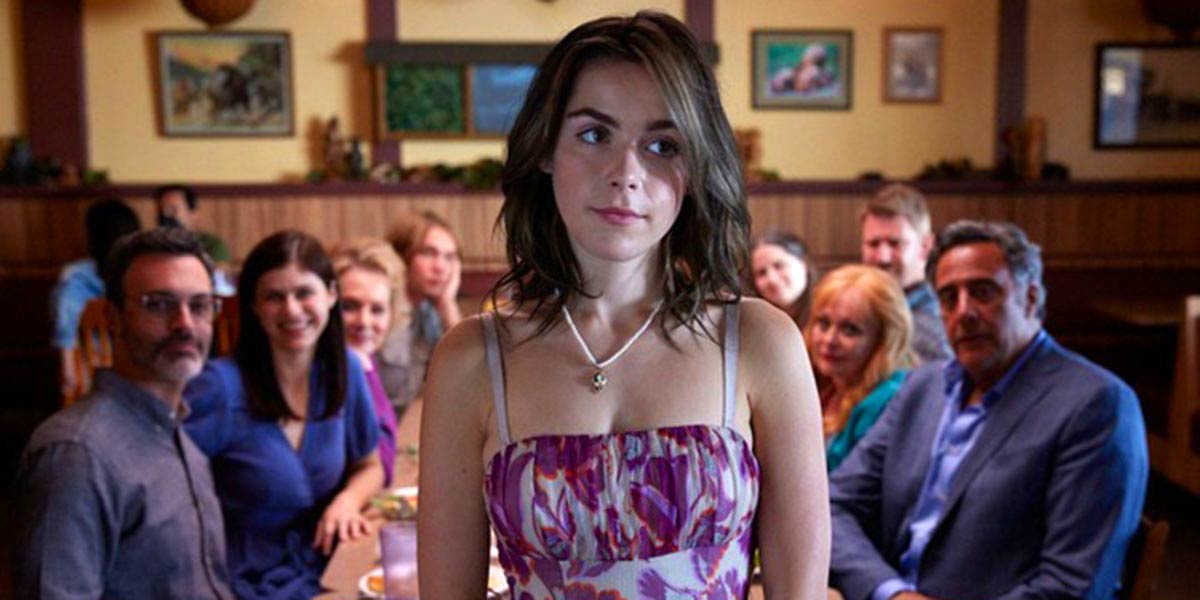In 2020, the filmmaker Matt Smukler — his most widely seen work then a Deutsche Telekom ad campaign starring Justin Bieber — completed a short about his wife’s sister’s family. Sheila Stahl and her husband Mike weren’t so different from any other small-town couple, a pair of good Christians gratefully receiving the daily pleasures of their hobbies (stock car racing, arts and crafts), their comfy recliners, and each other’s company. Smukler only began working on the project as a favor to their daughter Christina, who wanted a video that could show college admissions boards the unique challenges and rewards of her home life.
Because her mother was born with a mental condition that severely impeded half of her brain’s development, and because her father was never quite the same after sustaining that head injury in a motorcycling accident during his teenage years, she had to act as primary caretaker to both her parents from a young age. Scheduling, domestic finance, and an endless stream of paperwork to ensure that the proper state benefits arrive at the proper time all fell to her, making higher education and the pursuit of her own path in adulthood into dicey propositions.
READ MORE: TIFF 2022: 16 Must-See Films To See At The Toronto Film Festival
Smukler and “screenplay by” credit-holder Jana Savage soon began shopping around a script for a narrative feature based on this uncommon household dynamic, though he only gained traction once it was proven more common than anyone thought. Casting ramped up, and production finally kicked off in October of last year, just as the strikingly similar “CODA” emerged as the odds-on Oscar favorite, hinting at a public taste for feel-good stories about generation gaps in colorful, uncouth families living with disability. Presumably, that’s what financing production companies eOne and Limelight were looking for when they greenlit the concept in the market for another upbeat dramedy filtered through one girl’s coming-of-age. And that’s just what they got with “Wildflower,” a character piece so unconvincing in its bids for pathos that it feels more like a recycling of cinematic precedents than an adaptation of real life.
The film presents a hackneyed, movie-fied version of events, starting with the awkward framing device meant to wrestle an entire lifespan into a strict three-act structure. As Bea Johnson (portrayed post-puberty by Kiernan Shipka) lies in a coma, her voiceover cuts in to confirm that, yep, that’s her in that hospital bed, and we’re probably wondering how she got there. The record-scratch sound effect is, mercifully, implied. As her body hangs in limbo, she’ll narrate — and narrate, and narrate — her unconventional journey through girlhood, from birth to the difficult choice between going off to blaze her own path at an out-of-state school or standing by the loved ones (Samantha Hyde and Dash Mihok) in need of her help. The breadth of the timeline illustrates how the precocious self-sufficiency of her elementary years hardens into put-upon resentment come high school, an emotional arc lacking credibility in both writing and performance.
READ MORE: Fall 2022 Preview: 60+ Must-See Films To Watch
Shipka’s days on The CW’s scare-quoted “The Chilling Adventures of Sabrina” left her with bad habits, most pressing among them an anti-naturalism that makes every line-read sound like memorized dialogue, excepting only the obligatory confrontation that lets her play as dirty as an actual teenager. For the most part, however, she’s not helped by material that follows the festival-indie template with slavish fidelity. Since cinema law mandates that she requires characters to reflect her inner turmoil back at her, she gets a BFF (Kannon Omachi) to neglect until it’s reality-check time late in the second act and a boyfriend (Charlie Plummer) to fight with around this same juncture. Though she’s mostly caught in the riptide of her boisterous relatives, including dueling grandmas (Jean Smart and an amusingly, dependably coarse Jacki Weaver) as well as a bourgeois aunt and uncle (Alexandra Daddario and Reid Scott). This shouty yet tight-knit clan has the flavor of funniness without quite being funny in that their antics inspire polite smiles instead of actual laughter.
They’re all really here to deliver the drippy sentimentalities grasping at the heartstrings through the final scenes, as pathological caretaker Bea learns to accept a little outside support. There’s some substantive conflict inherent in her circumstance, leaving her torn between basic self-interest and the knowledge that doing the right thing means limiting or otherwise depriving herself. But the feather-light tone of the film never reckons with the sum total of personal implications contained within its own premise, opting for a gentle messiness that goes down easy. With its platitudes about how things can get tough, but we all make it through with a hand from the people around us, its depth stops at the profundity of a sitcom theme song. This shallowness extends to the intentions motivating the overall enterprise, too; a viewer gets the creeping feeling that something is being sold rather than revealed to us. [C-]
Follow along with all our coverage of the 2022 Toronto International Film Festival.





